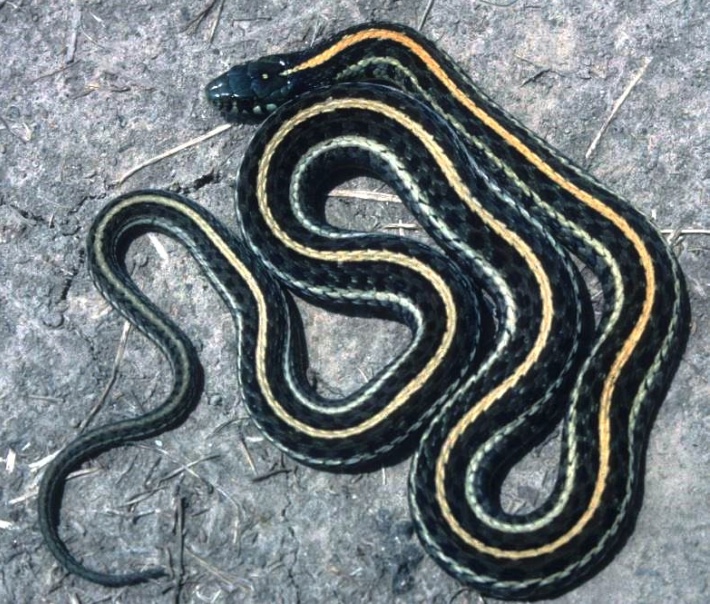Snakes sometimes find their way into basements or crawl spaces while in search of mice or other small rodents. After eating the mice, the snake will usually leave. Snakes gain access through small holes or cracks in foundations or siding. So sealing these holes will help keep out small rodents, which in turn will keep snakes out.
An average size snake can eat up to nine pounds of mice each year. That amount of mice would fill a pillowcase! Since mice can carry disease and damage farmers’ grain crops, snakes provide us with a very beneficial pest control service.
There is no need to panic if you find a snake indoors. There are only four species of venomous snakes in Illinois, and they are not going to be found in your home. The snakes most likely to end up in your basement are garter snakes, Eastern foxsnakes, or Midland ratsnakes. If you don’t know what kind of snake you’ve found, click HERE for a snake identification guide.
If you find a snake in your home, you can put on a pair of gloves, pick the snake up, and release it outside away from the building. If you prefer not to pick up the snake, you can use a broom and empty garbage can to gently sweep the snake into the can. You may need to put the lid on the can to keep the snake from getting away. Take the garbage can outside away from building and release the snake.
Some snake species appear more defensive than others, but they are more scared of you than you are of them. Some snakes shake their tails when they are disturbed, even if they are not rattlesnakes. Others will flatten their heads, strike at you, or hiss. Snakes may also release urine or musk when handled, while others will try to bite. These are all defensive mechanisms. The snake isn’t attacking you. It is worried you are attacking it, and it is just trying to keep itself safe.
To keep snakes from returning, seal all holes or cracks greater than 1/4-inch.
If you have questions about snakes, you can contact Scott Ballard, Illinois Department of Natural Resources, Southern Region Endangered & Threatened Recovery Species Specialist/Herpetologist, at: Scott.Ballard@Illinois.gov

The Wildlife Illinois website was authorized by the Illinois Department of Natural Resources (IDNR) in partial fulfillment of project W-147-T. The website was developed by the National Great Rivers Research and Education Center, 2wav, and the IDNR in partnership with the United States Department of Agriculture Animal and Plant Health Inspection Service Wildlife Services and University of Illinois Extension to provide research-based information about how to coexist with Illinois wildlife.